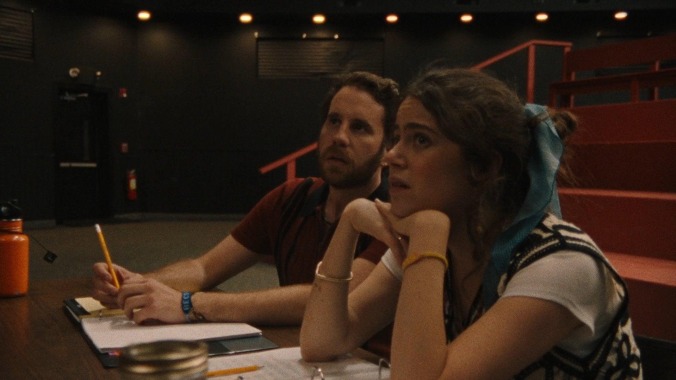Theater Camp review: Small stakes lead to big laughs
Ben Platt and Molly Gordon star in this winning comedy about an adolescent theater company that contains welcome echoes of Waiting For Guffman

There was a time when the adage “write what you know” was not only an instinctual starting place, but also sage industry advice. These days, many artists seem to recoil from those words, preferring high-concept ideas over simple, small stories, and stretching farther and farther past their own lived experience. But there’s a reason the above saying exists, and persists. And it is richly, rather thrillingly evident in Theater Camp, a small-stakes mockumentary that enjoyably skewers the idiosyncrasies of both adolescent performance and camp culture. While its various influences (one cup Waiting For Guffman, one cup Wet Hot American Summer, other assorted sprinklings) are abundantly evident, the movie is most defined by one element: its makers possess an authoritative knowledge of its world. They are also people who take what they love very seriously without taking themselves seriously. That combination proves a winning recipe, offering up no shortage of delights.
As alums and longtime head counselors, best friends Rebecca-Diane (Molly Gordon) and Amos Klobuchar (Ben Platt) reign over AdirondACTS, an upstate New York summer camp for adolescent aspiring performers. After a crisis forces Troy (Jimmy Tatro), a himbo social influencer and son of the camp’s longtime owner, into a leadership role, Rebecca-Diane and Amos must rally a colorful supporting cast—including choreographer Clive (Nathan Lee Graham), beleaguered stage manager Glenn (Noah Galvin), and new hire Janet (Ayo Edebiri)—in an effort to raise funds and help stave off the camp’s sale.
Co-written by Gordon, Galvin, Platt, and Nick Lieberman, and co-directed by Gordon and Lieberman, Theater Camp evinces deep roots from its earliest frames. Gordon and Platt, the children of industry professionals, grew up performing onstage together as kids (footage of them in Fiddler On The Roof and other productions pops up in flashbacks), and Lieberman has directed many music videos for Platt. Additionally, Galvin and Platt are engaged. So there is an abundance of trust and deeply interwoven experience both in front of and behind the camera.
Of course, none of this would matter if Theater Camp wasn’t funny. But it’s sharply drawn and full of lively detail, as well as quiet references to other comedic favorites of its makers (Rebecca-Diane, for example, feels like a quick nod to Cheers). A comedic run about mentholated eyeliner as an instrument of performative cheating seems destined to achieve immortality within the SAG/AFTRA community. Equally amusing is a multi-show casting session in which the camp counselors cattily assess and unpack the personas and relative talents of their prepubescent charges.
 Keep scrolling for more great stories.
Keep scrolling for more great stories.
